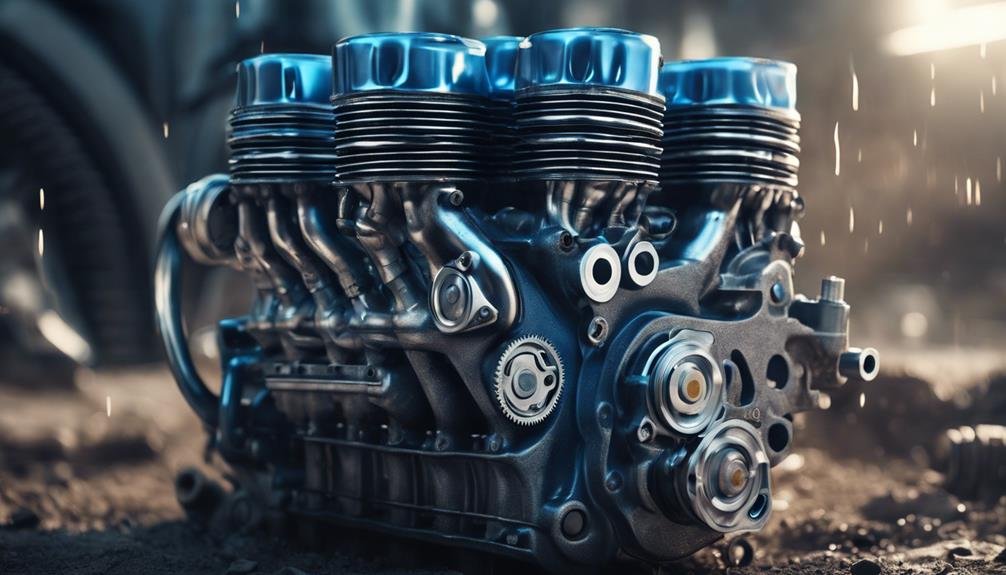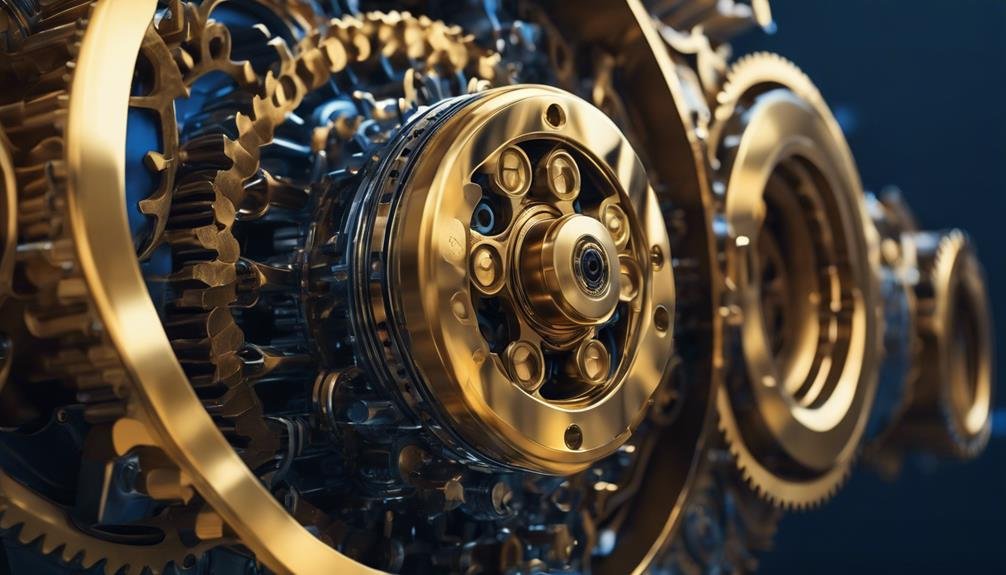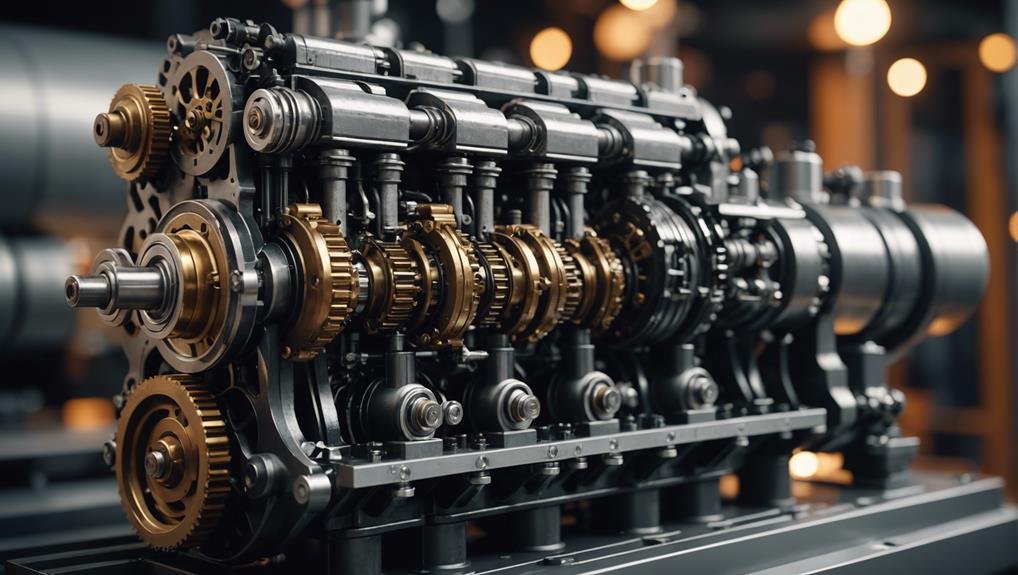When you start your car, the engine relies on oil to run smoothly, and it's important you understand why. Oil's primary functions include lubricating moving parts to reduce friction and wear, managing heat to prevent overheating, and cleaning the engine internally by carrying away dirt and debris. By performing these functions, oil helps prevent premature wear and tear, reduces friction, and improves engine efficiency. Additionally, regular oil changes are necessary to maintain lubricating properties and remove trapped contaminants. As you continue to learn about the importance of oil, you'll uncover more about how it's vital for your car's top performance and longevity.
Key Takeaways
- Engine oil lubricates moving parts, reducing friction and wear to prevent overheating and maintain peak performance.
- It prevents metal-to-metal contact, forming a protective barrier to reduce friction and wear on engine components.
- Oil carries away dirt and debris to the oil filter, preventing sludge buildup and maintaining engine cleanliness.
- It draws heat away from essential components, controlling engine temperature to prevent overheating and ensure consistent power production.
- Regular oil changes reduce wear and tear on critical components, preventing premature wear and tear on engine parts and prolonging engine longevity.
Engine Oil's Crucial Functions
As you drive, engine oil is hard at work, performing a multitude of important functions that keep your car running smoothly and prolong the life of your engine.
One of its primary functions is to lubricate moving parts, reducing friction and wear that can cause damage over time. By doing so, oil helps extend the life of your engine, ensuring it runs smoothly for years to come.
Moreover, oil plays a vital role in heat management, drawing heat away from components to prevent overheating and maintain peak performance. As you drive, oil is constantly at work, protecting your engine from excessive heat and friction.
Regular oil changes are necessary to maintain the effectiveness of your oil, as old oil loses its lubricating properties over time. By changing your oil regularly, you can rest assured your engine is well-protected, running smoothly and efficiently.
Preventing Friction and Wear
Every time you start your engine, the moving parts inside begin to grind against each other, generating massive amounts of friction that can lead to premature wear and tear, but engine oil is there to prevent exactly that.
Without engine oil, metal-to-metal contact would occur, causing excessive friction, which can lead to overheating and engine damage. However, when you add engine oil to the mix, it forms a protective barrier on surfaces, preventing wear and tear during operation.
This lubrication reduces friction, allowing moving parts to glide smoothly against each other. The importance of the oil plays a vital role in this process, cushioning and protecting engine parts from damage caused by friction.
Cleaning the Engine Internally

Your car's engine relies on oil to scrub away dirt and debris that can accumulate internally, and it does so by carrying these contaminants to the oil filter where they're trapped, preventing them from causing havoc.
As you drive, engine oil helps to clean the engine internally by carrying away dirt and debris, which can lead to sludge buildup if left unchecked. The additives in engine oil work to break down and suspend these contaminants, ensuring they don't accumulate and cause harm.
Regular oil changes are crucial to remove these trapped contaminants and maintain peak performance. When your engine is clean, it runs more efficiently, resulting in better fuel efficiency and reduced wear on engine components.
Cooling and Heat Management
You can't help but appreciate how engine oil's cleaning power is just half the story, because it's also responsible for keeping your engine's temperature in check.
As you're driving, controlled detonations inside the engine can heat metal components up to a scorching 315°C. That's where engine oil comes in, drawing heat away from essential components like pistons, valves, and bearings to prevent overheating.
Efficient heat management is vital, as it ensures consistent power production. By reducing friction and wear through proper lubrication, engine oil helps your engine run smoothly.
Without it, friction would cause excessive wear on moving parts, leading to decreased performance and potentially catastrophic engine failure.
Prolonging Engine Longevity

By adhering to a regular oil change schedule, car owners can greatly extend the lifespan of their engine, preventing premature wear and tear on critical components. This is because engine oil plays an important role in reducing friction between moving parts, improving engine performance and longevity.
| Regular Oil Changes | Neglecting Oil Changes |
|---|---|
| Reduces wear and tear | Increases wear and tear |
| Prevents overheating | Leads to overheating |
| Improves engine performance | Reduces engine efficiency |
Frequently Asked Questions
Does Oil Make Your Car Run Smoother?
You're wondering if oil makes your car run smoother, and the answer is yes! By lubricating moving parts, drawing heat away, and keeping the engine clean, oil plays an essential role in ensuring your car's smooth operation.
Why Does My Car Run Smoother After an Oil Change?
You notice your car runs smoother after an oil change because fresh oil reduces friction, dissipates heat, and lubricates engine parts, minimizing wear and tear, resulting in a more efficient and quieter ride.
Can Low Oil Make Car Run Rough?
You'll notice a rough ride when your car's oil level is low, causing friction, overheating, and wear on engine parts, triggering warning lights, and making your car run rough, so check that oil level regularly!
Does a Oil Change Make a Car Smoothly?
You'll notice a huge difference after an oil change – your car will run smoothly, quieter, and more efficiently, with improved acceleration and responsiveness, as fresh oil reduces friction and wear on moving engine parts.
Conclusion
As you've learned, engine oil plays an essential role in keeping your car running smoothly. By preventing friction and wear, cleaning the engine internally, and managing cooling and heat, oil ensures your engine lasts longer.
Without it, your engine would quickly deteriorate, leading to costly repairs or even complete failure. By understanding oil's critical functions, you'll appreciate its importance and prioritize regular oil changes to keep your car running at its best.
